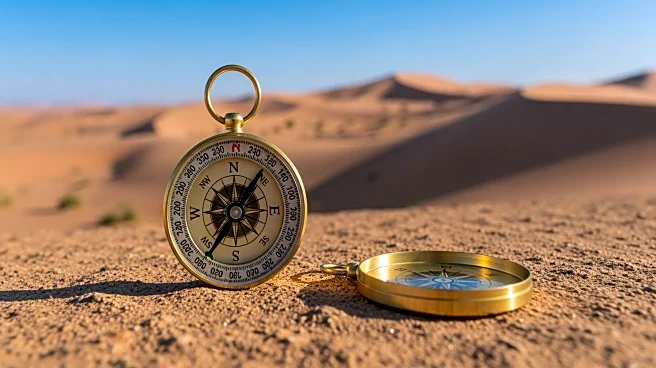What's Happening?
Western Sahara continues to face challenges in its quest for self-determination, as Morocco asserts its sovereignty over the region. Despite Morocco's claims, the United Nations has not endorsed Moroccan
sovereignty, and Western Sahara remains on the UN list of Non-Self-Governing Territories. The recent UN Security Council resolution extended the mandate of the UN Mission for the Referendum in Western Sahara (MINURSO) but did not resolve the issue of self-determination. The Sahrawi people have been living under Moroccan occupation and in refugee camps for decades, and their struggle for independence persists.
Why It's Important?
The situation in Western Sahara highlights the complexities of decolonization and the challenges of achieving self-determination in the face of geopolitical interests. Morocco's autonomy plan is presented as a solution, but it does not address the legal and political realities of the Sahrawi people's right to self-determination. The ongoing conflict has implications for regional stability and international law, as well as the human rights of the Sahrawi people. The international community remains divided on the issue, and the lack of resolution continues to impact the lives of those in the region.
Beyond the Headlines
The struggle for self-determination in Western Sahara is not just a political issue but also a human rights concern. The Sahrawi people face repression and limited access to resources, and their cultural identity is at risk. The international community's response to the situation reflects broader debates about colonial legacies and the right to self-determination. A just and lasting solution requires genuine political mechanisms, human rights monitoring, and respect for the Sahrawi people's rights and resources.









